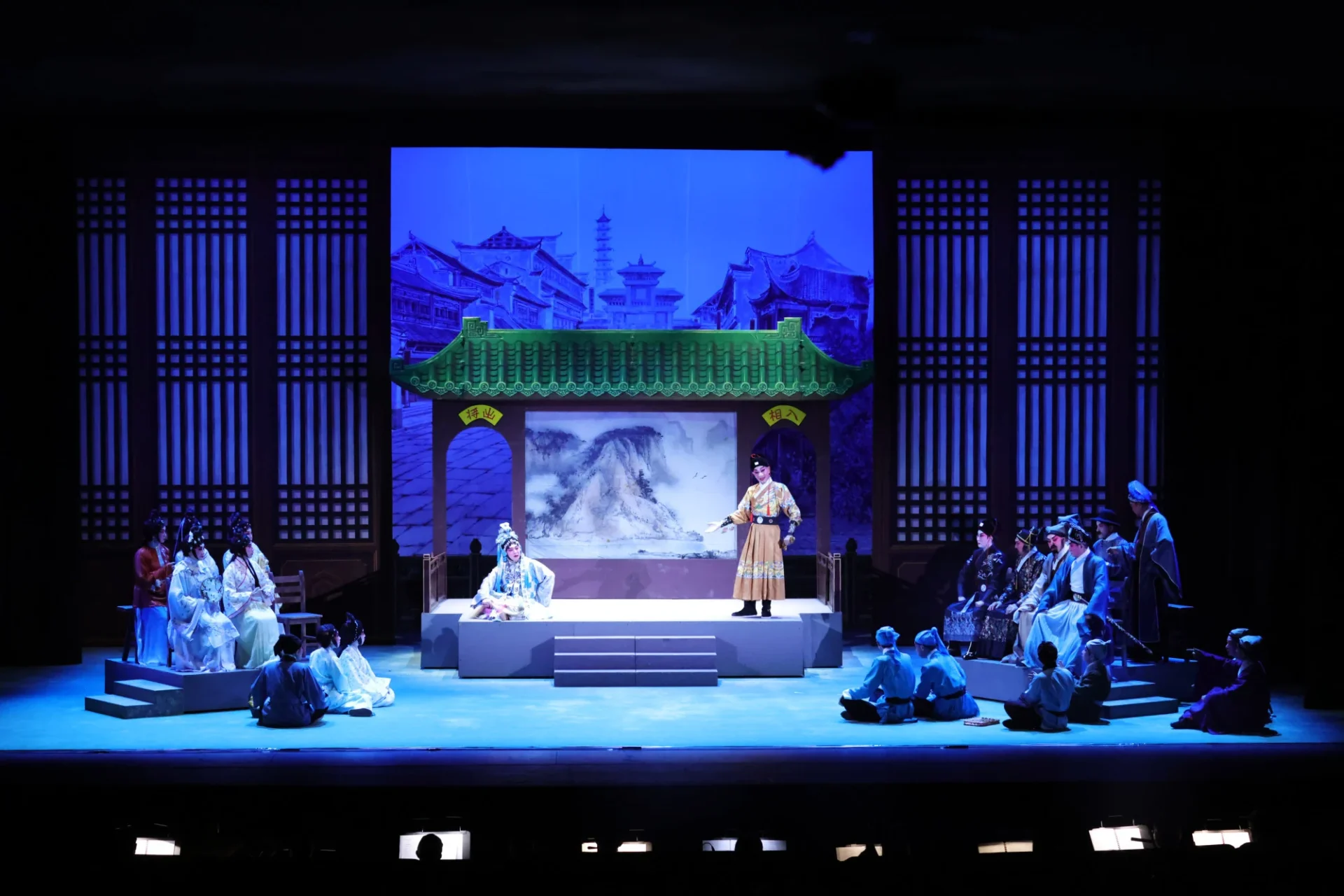Hong Kong’s long-running Chinese Opera Festival, now part of the Leisure and Cultural Services Department’s inaugural Chinese Culture Festival, opened at the Hong Kong Cultural Centre with three performances of Cyrano de Bergerac featuring the renowned actor and impresario Law Ka-ying.
Law, known for adapting works by Shakespeare and Kurosawa to the Cantonese lyrical stage, continues his mission to expand the repertory and sensibility of Hong Kong’s most local art form. Adapting Edmond Rostand’s 1897 play proved challenging, but Law’s version shows years of thoughtful consideration.
Cyrano de Bergerac, though seldom staged today due to its large cast requirements, remains a beloved story, adapted in various forms such as the 1990 film starring Gérard Depardieu, the 2021 musical with Peter Dinklage, and the 1987 romantic comedy Roxanne with Steve Martin. The narrative follows Cyrano, a poetic soldier self-conscious about his large nose, who is in love with the beautiful Roxane. She, however, loves Cyrano’s handsome but dull colleague Christian. Cyrano writes letters to Roxane under Christian’s name, leading to a poignant revelation years later.
In Law’s adaptation, Cyrano and Christian are renamed Zhu Bufan and Zhu Yihao, set in Ming dynasty China during the Tumu crisis near the Great Wall, instead of 17th-century France. Princess Xu Qishan replaces Roxane, portrayed by Law’s long-time partner Liza Wang Ming-chun.
Joshua Yuen’s sumptuous sets, influenced by cinema and period stage drama, allowed the large cast to move freely, departing from traditional Chinese opera’s minimalistic “one-table-two-chairs” approach. Law’s adaptation also deviated from conventional Cantonese opera, presenting a love triangle with unique character dynamics: a handsome but dim-witted figure and a noble scholar-warrior with a clown nose.
Law’s portrayal of Zhu Bufan harnessed these contradictions for humorous effect, though his character leaned more on verbal prowess than martial skills. Sun Kim-long’s Zhu Yihao, confident and contrasting with Bufan’s insecurities, lacked deeper duality and co-dependency.
Pang Kam-shun’s musical direction embraced Cantonese opera’s tradition of blending diverse musical sources, incorporating elements from the Wong Fei-hung theme, a George Lam pop song, and the Neapolitan tune Torna a Surriento. However, the dramatic structure sometimes felt too faithful to the original, with a slow buildup of the narrative.
Post-interval, the narrative found its rhythm. The balcony scene, with Bufan speaking from the shadows while Yihao lip-synched, and the final scene where Princess Xu realizes Bufan’s true authorship of the letters, showcased a blend of Cantonese opera and Western theatre styles. This fusion created a unique and effective expression for the story’s climax, highlighting the emotional depth and versatility of both art forms.
READ MORE:
